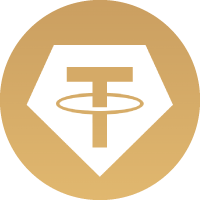Bitget:全球日交易量排名前 4!
BTC 市占率63.48%
Bitget 新幣上架 : Pi Network
BTC/USDT$94372.20 (+1.93%)恐懼與貪婪指數60(貪婪)
山寨季指數:0(比特幣季)
盤前交易幣種INIT比特幣現貨 ETF 總淨流量:+$442M(1 天);+$2.59B(7 天)。Bitget 新用戶立享 6,200 USDT 歡迎禮包!立即領取
到 Bitget App 隨時隨地輕鬆交易!立即下載
Bitget:全球日交易量排名前 4!
BTC 市占率63.48%
Bitget 新幣上架 : Pi Network
BTC/USDT$94372.20 (+1.93%)恐懼與貪婪指數60(貪婪)
山寨季指數:0(比特幣季)
盤前交易幣種INIT比特幣現貨 ETF 總淨流量:+$442M(1 天);+$2.59B(7 天)。Bitget 新用戶立享 6,200 USDT 歡迎禮包!立即領取
到 Bitget App 隨時隨地輕鬆交易!立即下載
Bitget:全球日交易量排名前 4!
BTC 市占率63.48%
Bitget 新幣上架 : Pi Network
BTC/USDT$94372.20 (+1.93%)恐懼與貪婪指數60(貪婪)
山寨季指數:0(比特幣季)
盤前交易幣種INIT比特幣現貨 ETF 總淨流量:+$442M(1 天);+$2.59B(7 天)。Bitget 新用戶立享 6,200 USDT 歡迎禮包!立即領取
到 Bitget App 隨時隨地輕鬆交易!立即下載



Inter Milan Fan Token 價格INTER
上架
報價幣種:
TWD
NT$26.88+0.71%1D
價格圖表
TradingView
市值
Inter Milan Fan Token價格走勢圖 (INTER/TWD)
最近更新時間 2025-04-25 13:52:40(UTC+0)
市值:NT$228,387,343.26
完全稀釋市值:NT$228,387,343.26
24 小時交易額:NT$31,202,536.69
24 小時交易額/市值:13.66%
24 小時最高價:NT$26.88
24 小時最低價:NT$26.22
歷史最高價:NT$458.73
歷史最低價:NT$24.37
流通量:8,497,016 INTER
總發行量:
19,728,000INTER
流通率:43.00%
最大發行量:
--INTER
以 BTC 計價:0.{5}8728 BTC
以 ETH 計價:0.0004655 ETH
以 BTC 市值計價:
NT$7,196,136.43
以 ETH 市值計價:
NT$820,315.74
合約:
0x67e4...2B9078d(Chiliz)
更多
您今天對 Inter Milan Fan Token 感覺如何?
注意:此資訊僅供參考。
Inter Milan Fan Token (INTER) 簡介
了解足球俱樂部幣:揭開Inter Milan Fan Token的奧秘
以下我們將針對Inter Milan Fan Token的創新平臺在加密貨幣業界中的地位,使命與核心功能加以討論,並為你提供最寶貴的洞察。
Inter Milan Fan Token的歷史背景
Inter Milan Fan Token 是一種加密貨幣,專門為國際米蘭足球俱樂部的粉絲設計,旨在使球迷與他們所喜愛的足球俱樂部產生前所未有的互動。這種新型數位資產的推出標誌著足球和區塊鏈科技的重要融合,藉此實現新的粉絲參與模式。
Inter Milan Fan Token的特點
提升粉絲參與
Inter Milan Fan Token的設計初衷在於提升粉絲的參與度和賦權。持有這種Fan Token的粉絲有機會參加俱樂部的投票,對俱樂部的一些重要決定發表自己的觀點。這裡的投票主題可能包括新球衣的選擇、慈善活動的舉辦,甚至是陣容的調整。
獨家獎勵及體驗
持有Inter Milan Fan Token的用戶還有可能獲得一些獨家獎勵和體驗,例如親臨比賽現場、探訪更衣室等。足球俱樂部幣對粉絲的互動甚至可能延伸到虛擬現實技術,例如跟隨俱樂部進行虛擬遊覽。
結論
Inter Milan Fan Token的創新理念已經開創了足球及區塊鏈科技的新篇章,使粉絲和足球俱樂部之間創造了更緊密的聯繫。它證明了數位資產的力量,並以此為藍圖,描繪出加密貨幣領域未來的可能性。 然而,與任何新興技術一樣,它面臨許多挑戰和不確定性。作為視覺者或參與者,我們需要密切關注其發展動向,以確保我們能在瞬息萬變的數位世界中保持最前沿。
Inter Milan Fan Token 的 AI 分析報告
今日加密市場熱點查看報告
今日Inter Milan Fan Token即時價格TWD
今日 Inter Milan Fan Token 即時價格為 NT$26.88 TWD,目前市值為 NT$228.39M。過去 24 小時內,Inter Milan Fan Token 價格漲幅為 0.71%,24 小時交易量為 NT$31.20M。INTER/TWD(Inter Milan Fan Token 兌換 TWD)兌換率即時更新。
Inter Milan Fan Token價格歷史(TWD)
過去一年,Inter Milan Fan Token價格上漲了 -62.47%。在此期間,INTER兌TWD 的最高價格為 NT$109.63,INTER兌TWD 的最低價格為 NT$24.37。
時間漲跌幅(%) 最低價
最低價 最高價
最高價 
 最低價
最低價 最高價
最高價 
24h+0.71%NT$26.22NT$26.88
7d+0.37%NT$25.04NT$28.49
30d-6.40%NT$24.37NT$30.59
90d-24.15%NT$24.37NT$36.27
1y-62.47%NT$24.37NT$109.63
全部時間-88.79%NT$24.37(2025-04-07, 18 天前 )NT$458.73(2021-10-22, 3 年前 )
Inter Milan Fan Token的最高價格是多少?
Inter Milan Fan Token兌換TWD的歷史最高價(ATH)為 NT$458.73,發生於 2021-10-22。相較於價格回撤了 94.14%。
Inter Milan Fan Token的最低價格是多少?
Inter Milan Fan Token兌換TWD的歷史最低價(ATL)為 NT$24.37,發生於 2025-04-07。相較於Inter Milan Fan Token歷史最低價,目前Inter Milan Fan Token價格上漲了 10.30%。
Inter Milan Fan Token價格預測
INTER 在 2026 的價格是多少?
根據INTER的歷史價格表現預測模型,預計INTER的價格將在 2026 達到 NT$26.01。
INTER 在 2031 的價格是多少?
2031,INTER的價格預計將上漲 -3.00%。 到 2031 底,預計INTER的價格將達到 NT$48.76,累計投資報酬率為 +82.07%。
常見問題
Inter Milan Fan Token 的目前價格是多少?
Inter Milan Fan Token 的即時價格為 NT$26.88(INTER/TWD),目前市值為 NT$228,387,343.26 TWD。由於加密貨幣市場全天候不間斷交易,Inter Milan Fan Token 的價格經常波動。您可以在 Bitget 上查看 Inter Milan Fan Token 的市場價格及其歷史數據。
Inter Milan Fan Token 的 24 小時交易量是多少?
在最近 24 小時內,Inter Milan Fan Token 的交易量為 NT$31.20M。
Inter Milan Fan Token 的歷史最高價是多少?
Inter Milan Fan Token 的歷史最高價是 NT$458.73。這個歷史最高價是 Inter Milan Fan Token 自推出以來的最高價。
我可以在 Bitget 上購買 Inter Milan Fan Token 嗎?
可以,Inter Milan Fan Token 目前在 Bitget 的中心化交易平台上可用。如需更詳細的說明,請查看我們很有幫助的 如何購買 inter-milan-fan-token 指南。
我可以透過投資 Inter Milan Fan Token 獲得穩定的收入嗎?
當然,Bitget 推出了一個 機器人交易平台,其提供智能交易機器人,可以自動執行您的交易,幫您賺取收益。
我在哪裡能以最低的費用購買 Inter Milan Fan Token?
Bitget提供行業領先的交易費用和市場深度,以確保交易者能够從投資中獲利。 您可通過 Bitget 交易所交易。
Inter Milan Fan Token 資訊
Inter Milan Fan Token行情
Inter Milan Fan Token持幣分布集中度
巨鯨
投資者
散戶
Inter Milan Fan Token地址持有時長分布
長期持幣者
游資
交易者
coinInfo.name(12)即時價格表

全球Inter Milan Fan Token價格
目前Inter Milan Fan Token用其他貨幣計價是多少?最近更新時間:2025-04-25 13:52:40(UTC+0)
INTER 兌換 MXN
Mexican Peso
Mex$16.22INTER 兌換 GTQGuatemalan Quetzal
Q6.36INTER 兌換 CLPChilean Peso
CLP$773.04INTER 兌換 UGXUgandan Shilling
Sh3,026INTER 兌換 HNLHonduran Lempira
L21.4INTER 兌換 ZARSouth African Rand
R15.55INTER 兌換 TNDTunisian Dinar
د.ت2.47INTER 兌換 IQDIraqi Dinar
ع.د1,081.37INTER 兌換 TWDNew Taiwan Dollar
NT$26.86INTER 兌換 RSDSerbian Dinar
дин.85.23INTER 兌換 DOPDominican Peso
RD$49.03INTER 兌換 MYRMalaysian Ringgit
RM3.61INTER 兌換 GELGeorgian Lari
₾2.26INTER 兌換 UYUUruguayan Peso
$34.46INTER 兌換 MADMoroccan Dirham
د.م.7.66INTER 兌換 OMROmani Rial
ر.ع.0.32INTER 兌換 AZNAzerbaijani Manat
₼1.4INTER 兌換 KESKenyan Shilling
Sh106.91INTER 兌換 SEKSwedish Krona
kr8INTER 兌換 UAHUkrainian Hryvnia
₴34.52- 1
- 2
- 3
- 4
- 5
如何購買Inter Milan Fan Token(INTER)

建立您的免費 Bitget 帳戶
使用您的電子郵件地址/手機號碼在 Bitget 註冊,並建立強大的密碼以確保您的帳戶安全

認證您的帳戶
輸入您的個人資訊並上傳有效的身份照片進行身份認證

將 Inter Milan Fan Token 兌換為 INTER
在 Bitget 上選擇加密貨幣進行交易。
了解更多購買其他幣種
您可以在哪裡購買Inter Milan Fan Token(INTER)?
影片部分 - 快速認證、快速交易

如何在 Bitget 完成身分認證以防範詐騙
1. 登入您的 Bitget 帳戶。
2. 如果您是 Bitget 的新用戶,請觀看我們的教學,以了解如何建立帳戶。
3. 將滑鼠移到您的個人頭像上,點擊「未認證」,然後點擊「認證」。
4. 選擇您簽發的國家或地區和證件類型,然後根據指示進行操作。
5. 根據您的偏好,選擇「手機認證」或「電腦認證」。
6. 填寫您的詳細資訊,提交身分證影本,並拍攝一張自拍照。
7. 提交申請後,身分認證就完成了!
加密貨幣投資(包括透過 Bitget 線上購買 Inter Milan Fan Token)具有市場風險。Bitget 為您提供購買 Inter Milan Fan Token 的簡便方式,並且盡最大努力讓用戶充分了解我們在交易所提供的每種加密貨幣。但是,我們不對您購買 Inter Milan Fan Token 可能產生的結果負責。此頁面和其包含的任何資訊均不代表對任何特定加密貨幣的背書認可,任何價格數據均採集自公開互聯網,不被視為來自Bitget的買賣要約。
Inter Milan Fan Token評級
社群的平均評分
4.4
此內容僅供參考。
Bitget 觀點

Robertz
7小時前
Comparing the tokenomics of $INIT with other multichain projects.
Comparing the tokenomics of $INIT with other multichain projects requires looking at several key aspects, including total supply, distribution, utility, and incentive mechanisms. Here's a general comparison, keeping in mind that each project has its unique approach:
$INIT Tokenomics (as of late April 2025):
* Total Supply: 1 billion tokens (fixed).
* Initial Circulating Supply: Approximately 14.88%.
* Distribution:
* 50% - VIP & Enshrined Liquidity (incentivizing usage and security).
* 30% - Community Round (broadening ownership).
* 15% - Investors (funding early development).
* 5% - Airdrop (rewarding early supporters).
* Utility: Gas fees on L1, staking for security, governance, liquidity provision on InitiaDEX, cross-rollup asset transfers.
* Incentives: Vested Interest Program (VIP) rewards in esINIT, enshrined liquidity mechanism rewarding LP stakers with $INIT and security benefits.
* Vesting: Significant portions for team and investors with long vesting schedules (4 years with a 1-year cliff), and linear vesting for community and ecosystem tokens (60 months).
Comparison with Other Multichain Projects:
To provide a meaningful comparison, let's consider a few other prominent multichain projects and their tokenomics:
1. Polkadot (DOT):
* Total Supply: Initially fixed, but Polkadot has a perpetual inflation model designed to incentivize staking.
* Distribution: A significant portion was sold through ICOs, with allocations for the foundation, early backers, and future development.
* Utility: Staking for network security (Nominated Proof-of-Stake), governance (proposing and voting on upgrades), and bonding to secure parachains.
* Incentives: Staking rewards through inflation.
* Multichain Aspect: Focuses on interoperability through its relay chain and parachains. DOT is crucial for securing the relay chain and participating in parachain auctions.
Key Differences from $INIT: Polkadot has an inflationary model, whereas $INIT has a fixed supply. Polkadot's utility is heavily tied to securing and governing its specific multichain architecture.
2. Avalanche (AVAX):
* Total Supply: 720 million tokens (capped).
* Distribution: Public sale, foundation, team, and staking rewards.
* Utility: Gas fees on the X-Chain, P-Chain, and C-Chain, staking for network security (Avalanche consensus), and participating in subnet creation and validation.
* Incentives: Staking rewards.
* Multichain Aspect: Allows the creation of custom blockchains (subnets) that can interoperate. AVAX is used for securing the primary network and staking on subnets.
Key Differences from $INIT: Avalanche has a capped supply but a different distribution model with a focus on staking rewards for securing its specific network architecture. $INIT's enshrined liquidity mechanism offers a unique approach to combining liquidity and security.
3. Cosmos (ATOM):
* Total Supply: Inflationary model, with the inflation rate adjusting based on the amount of staked ATOM.
* Distribution: ICO, foundation, and staking rewards.
* Utility: Staking to secure the Cosmos Hub, governance of the Cosmos Hub, and potentially as a medium of exchange within the IBC ecosystem.
* Incentives: Staking rewards through inflation.
* Multichain Aspect: Focuses on interoperability through the Inter-Blockchain Communication (IBC) protocol, connecting independent blockchains (zones). ATOM secures the Cosmos Hub and can be used for inter-chain transactions and governance.
Key Differences from $INIT: Cosmos has an inflationary model focused on securing its hub. While $INIT leverages the Cosmos SDK and IBC, its enshrined liquidity and VIP programs offer distinct incentive structures.
Similarities and Unique Aspects of $INIT:
* Fixed Supply: Similar to Avalanche, $INIT has a fixed supply, which can create scarcity over time. Polkadot and Cosmos have inflationary models.
* Staking for Security: Like all three, $INIT utilizes staking to secure its Layer 1.
* Governance: $INIT holders participate in governance, a common feature among these projects.
* Focus on Interoperability: $INIT is designed for a multichain future with its interwoven rollups and IBC/LayerZero integrations, similar to the core goals of Polkadot and Cosmos.
* Unique Enshrined Liquidity: This mechanism is a key differentiator for $INIT, directly linking DEX liquidity with network security and providing enhanced rewards for LPs.
* Vested Interest Program (VIP): The significant allocation to the VIP for incentivizing various ecosystem activities is a prominent feature of $INIT's tokenomics aimed at driving early adoption and growth across its interwoven rollups.
* Multi-VM Focus: Initia's support for multiple Virtual Machines (EVM, MoveVM, WASM) on its rollups could lead to unique demand drivers for $INIT as the ecosystem diversifies.
Conclusion:
$INIT's tokenomics shares some common features with other multichain projects like a fixed or capped supply (compared to inflationary models), staking for security, and governance. However, its enshrined liquidity mechanism and the significant allocation to the Vested Interest Program for incentivizing ecosystem growth across its interwoven rollups are distinct features. The success of $INIT's tokenomics will depend on the adoption of its multichain architecture and the utility it provides within its unique ecosystem.
DOT-0.11%
X+1.07%
KashD
8小時前
Exploring the Interwoven Stack for developers.
Exploring the Interwoven Stack for developers reveals a suite of tools and infrastructure designed to streamline the process of building, deploying, and managing applications within Initia's unique network of interconnected rollups. The goal of this stack is to abstract away the complexities of the underlying multichain architecture, providing developers with a cohesive and user-friendly experience regardless of their chosen Virtual Machine (VM).
While specific details might evolve, we can infer the key components and functionalities of the Interwoven Stack based on Initia's architecture and goals:
Core Components and Potential Functionalities:
* Rollup Development Framework:
* VM Abstraction Layers: Tools and libraries that simplify the development process for different VMs (EVM, MoveVM, WASM). This might involve standardized APIs and interfaces that developers can interact with, regardless of the underlying VM.
* SDKs and Language Bindings: Software Development Kits (SDKs) for popular programming languages (e.g., Solidity, Move, Rust/Go for WASM) that provide developers with the necessary libraries and tools to write smart contracts and interact with the Initia network.
* Customization Tools: Interfaces or configuration files that allow developers to easily customize their application-specific rollups, including gas token selection, transaction ordering, and specific module integrations.
* Deployment and Management Tools:
* Rollup Deployment CLI (Command-Line Interface): A user-friendly CLI to deploy new interwoven rollups to the Initia network with minimal configuration. This would handle the underlying complexities of interacting with the Initia Layer 1.
* Monitoring and Logging: Tools for developers to monitor the performance and health of their deployed rollups, providing insights into transaction activity, resource usage, and potential issues.
* Upgrade and Maintenance Tools: Mechanisms for developers to easily upgrade their rollup contracts and manage the lifecycle of their applications.
* Interoperability Tools:
* Cross-Rollup Communication APIs: Standardized APIs and libraries that simplify the process of sending messages and transferring assets between different interwoven rollups. This might abstract away the underlying communication protocols (e.g., IBC, LayerZero).
* Inter-VM Communication Bridges (Potential Future Feature): Tools that facilitate interaction and asset transfer between applications running on different VMs within the Initia ecosystem.
* Integration with Interoperability Protocols: Libraries and interfaces that make it easier for developers to leverage IBC and LayerZero for communicating with external blockchain networks.
* Testing and Debugging Environment:
* Local Development Network: A simulated Initia environment that developers can run locally to test their rollups and applications in isolation before deploying to the main network.
* Debugging Tools: Specialized debuggers tailored to the different supported VMs within the Initia context.
* Testing Frameworks: Integration with popular testing frameworks for each supported programming language.
* Documentation and Resources:
* Comprehensive Documentation: Clear and well-maintained documentation covering all aspects of the Interwoven Stack, including tutorials, guides, and API references.
* Developer Community Support: Access to forums, chat channels, and other community resources where developers can ask questions and get support.
* Example Applications and Templates: Starter projects and code examples demonstrating how to build and connect interwoven rollups for various use cases.
Significance of the Interwoven Stack:
* Reduced Development Complexity: By providing a unified set of tools, the Interwoven Stack aims to significantly reduce the complexity associated with building and deploying cross-chain applications.
* Faster Time to Market: Streamlined development and deployment processes will enable developers to bring their applications to market more quickly.
* Lower Barrier to Entry: The stack will lower the barrier to entry for developers who might be intimidated by the complexities of multichain development.
* Enhanced Developer Experience: A well-designed Interwoven Stack will provide a smooth and intuitive developer experience, encouraging more builders to choose Initia.
* Fostering Innovation: By making it easier to build and connect specialized rollups, the stack will foster innovation and the creation of novel cross-chain applications.
In conclusion, the Interwoven Stack is a critical component of Initia's strategy to attract developers and build a thriving ecosystem of interconnected rollups. By providing a comprehensive and user-friendly suite of tools, Initia aims to empower developers to seamlessly navigate the multichain world and build the next generation o
f decentralized applications.
$INIT
CORE+4.30%
MOVE+0.50%
KashD
8小時前
The technical architecture of the Initia Layer 1.
The technical architecture of the Initia Layer 1 is designed to serve as a secure, scalable, and interoperable foundation for its network of interwoven rollups. Built using the Cosmos SDK, it leverages the strengths of this modular framework while incorporating unique features tailored to Initia's specific goals. Here's a breakdown of its key components and characteristics:
1. Cosmos SDK Framework:
* Modularity: Initia leverages the modularity of the Cosmos SDK, allowing it to select and customize specific modules for its needs, such as consensus, governance, and inter-blockchain communication (IBC).
* CometBFT Consensus: Initia utilizes CometBFT (formerly Tendermint Core) as its consensus engine. CometBFT provides Byzantine Fault Tolerance (BFT), ensuring that the network can reach agreement on transactions even if up to one-third of the validators are malicious. It offers fast block times and instant finality.
2. Key Features and Modules:
* Omnitia Liquidity Hub (Native DEX): The Layer 1 hosts a native Decentralized Exchange (DEX) similar to Balancer, supporting both weighted and stable swap pools. This DEX serves as a central liquidity hub for the entire Initia ecosystem, facilitating swaps between the native $INIT token and other whitelisted assets. It plays a crucial role in enabling cross-rollup liquidity and efficient asset transfers.
* Enshrined Liquidity: A novel mechanism where specific $INIT-denominated Liquidity Provider (LP) tokens can be staked with validators. This dual-purpose staking enhances both network security and liquidity within the ecosystem, maximizing capital efficiency for users.
* Omnitia Shared Security (OSS): The Layer 1 provides a shared security model for the interwoven rollups. The L1 validator set is responsible for adjudicating fraud proofs submitted by challengers regarding invalid operations on the Layer 2 rollups.
* Shared Data Availability Layer: While rollups can post their transaction data to Celestia for cost-effective data availability, the L1 also provides a shared data availability layer. L1 validators and other network participants can access state data necessary for constructing and verifying fraud proofs.
* IBC (Inter-Blockchain Communication): Being built with the Cosmos SDK, Initia L1 has native support for IBC. This allows seamless and secure communication and asset transfer not only between its own interwoven rollups but also with other IBC-enabled blockchains within the broader Cosmos ecosystem.
* Governance: The $INIT token governs the Initia network at the Layer 1 level. Staked $INIT holders have the ability to vote on protocol upgrades, network parameters, whitelisting of assets for enshrined liquidity, and other key decisions.
* x/mstaking Module: This custom module enhances the Delegated Proof-of-Stake (DPoS) mechanism, allowing multiple tokens (specifically whitelisted LP tokens containing $INIT) to be staked directly with validators, forming the basis of the enshrined liquidity.
3. Role as Coordination Layer:
* The Initia Layer 1 acts as the central coordination point for all the interwoven rollups. It facilitates the bridging of assets between the L1 and L2s and between different L2s.
* It serves as the ultimate settlement layer and ensures the security and integrity of the entire network.
* The L1 manages the registration and lifecycle of the interwoven rollups.
In essence, the technical architecture of the Initia Layer 1 is a carefully designed foundation leveraging the Cosmos SDK and incorporating innovative features like enshrined liquidity and a native DEX. It prioritizes security, interoperability, and efficient coordination to support a thriving ecosystem of interconnected and application-s
pecific rollups.
X+1.07%
CORE+4.30%

Dancrypts
8小時前
How do Initia's interwoven rollups communicate with each other?
Initia's interwoven rollups are designed for seamless and efficient communication, leveraging the underlying Initia Layer 1 as a coordination layer and potentially employing direct communication pathways. Here's a breakdown of how this communication likely works:
1. Anchoring to the Initia Layer 1:
* State Commitments: Each interwoven rollup periodically submits state commitments to the Initia Layer 1. These commitments are cryptographic proofs of the rollup's current state. By anchoring these commitments on the L1, a shared and secure record of each rollup's evolution is maintained.
* Message Passing via L1: The Layer 1 acts as a central message hub. When one rollup needs to send information or assets to another, it can post a message along with a proof of its state on the L1. The target rollup can then verify this message against the committed state on the L1 and process it. This ensures secure and verifiable cross-rollup communication.
2. Utilizing the Inter-Blockchain Communication (IBC) Protocol:
* Native IBC Integration: Since Initia's Layer 1 is built with the Cosmos SDK, it inherently supports the Inter-Blockchain Communication (IBC) protocol. This robust and standardized protocol enables secure and reliable transfer of assets and data between independent blockchains.
* Cross-Rollup IBC Channels: Initia can establish IBC channels between its interwoven rollups. This would allow for direct and sovereign communication without necessarily going through the Layer 1 for every interaction, potentially increasing efficiency for frequent interactions between specific rollups.
* Interoperability with External IBC Chains: The IBC integration also allows Initia's interwoven rollups to seamlessly interact with other blockchains within the vast Cosmos ecosystem.
3. Leveraging LayerZero Protocol:
* Integration for Broader Interoperability: Initia has also partnered with LayerZero, an omnichain interoperability protocol. This integration allows Initia's interwoven rollups to communicate and transfer assets with blockchains outside the Cosmos ecosystem that are also integrated with LayerZero (e.g., various EVM chains).
* Unified Messaging Layer: LayerZero acts as a unified messaging layer, simplifying cross-chain communication by providing a standard interface for sending and receiving messages across different networks.
4. Potential for Direct Rollup-to-Rollup Communication:
* Optimized Pathways: While the L1 and interoperability protocols provide secure and general-purpose communication, Initia might also implement more direct communication pathways between frequently interacting rollups for enhanced speed and reduced latency. This could involve specific protocols built on top of the L1's infrastructure.
* Shared Sequencers (Future Possibility): In more advanced designs, shared sequencers across multiple rollups could facilitate faster and more tightly coupled interactions. However, this might introduce complexities in terms of fault tolerance and governance.
In Summary, Initia's interwoven rollups likely communicate with each other through a combination of:
* Secure message passing anchored on the Initia Layer 1.
* Direct and sovereign communication channels via the Inter-Blockchain Communication (IBC) protocol.
* Broad interoperability with external chains through the LayerZero protocol.
* Potential future optimizations for direct rollup-to-rollup communication for specific use cases.
This multi-faceted approach aims to provide a flexible, secure, and efficient communication infrastructure that enables seamless interaction and composability between applications deployed across Initia's network of interwoven rollups, ultimately contributing to a more unified and user-friendly multichain experience.$INIT
INTER+1.56%
INIT+20.52%

Dancrypts
8小時前
The long-term vision and roadmap for the Initia network.
The long-term vision for the Initia network is to establish itself as a leading platform for interconnected and user-friendly multichain applications. It aims to solve the fragmentation challenges of the current blockchain landscape by providing a seamless experience for both developers and users in a world of diverse and specialized blockchains.
Here's a breakdown of the key aspects of their long-term vision:
* Becoming the Standard for Interconnected Rollups: Initia envisions a future where its "interwoven rollup" architecture becomes a widely adopted model for building scalable and interoperable decentralized applications.
* Empowering a Thriving Ecosystem: They aim to foster a vibrant ecosystem of application-specific rollups spanning various sectors like DeFi, gaming, NFTs, and enterprise solutions, all seamlessly connected through the Initia Layer 1.
* Simplifying the Multichain User Experience: A core goal is to abstract away the complexities of interacting with multiple blockchains, offering users a unified and intuitive experience for cross-chain asset transfers and application usage.
* Driving Innovation through Flexibility: By supporting multiple Virtual Machines (EVM, MoveVM, WASM) within their rollups, Initia seeks to unlock new possibilities for application development and attract a diverse pool of talented developers.
* Establishing a Robust and Secure Foundation: The Initia Layer 1 is intended to be a highly secure and reliable coordination and liquidity hub, ensuring the stability and integrity of the entire network.
* Fostering Decentralized Governance: A long-term commitment to community-driven governance through the $INIT token aims to ensure the network evolves in a way that benefits its users and stakeholders.
Current Roadmap Highlights (as of late April 2025):
While a detailed long-term roadmap extending several years into the future isn't explicitly available in the provided snippets, the current roadmap focuses on the immediate post-launch phases:
Q2 2025:
* Mainnet Launch: The activation of the Initia Layer 1 network.
* Airdrop: Distribution of $INIT tokens to early community members.
* Interwoven Rollups Live: The initial set of interconnected Layer 2 solutions will be launched.
Q3 2025:
* More Interwoven Rollups Live: Expansion of the Layer 2 ecosystem with additional rollups going live.
* Initia Product Suite Upgrades and Improvements: Enhancements to their toolkit, potentially including the explorer, wallet, and bridge functionalities.
* L1 Performance Improvements: Optimizations to the main network for better speed and efficiency.
Q4 2025:
* New VMs on Interwoven Rollups: Introduction of support for additional Virtual Machines beyond the initial EVM, MoveVM, and WASM in the rollups.
* Interwoven Stack Improvements: Further development and refinement of tools for developers to build on Initia.
Looking Beyond the Immediate Roadmap:
Based on their vision and current trajectory, we can infer potential areas of focus for Initia's longer-term roadmap:
* Ecosystem Growth Initiatives: Programs and partnerships to attract more developers and projects to build on the Initia network across various use cases.
* Cross-Chain Interoperability Enhancements: Further integrations with other blockchain ecosystems beyond IBC and LayerZero.
* Advanced Inter-Rollup Communication Features: Potential development of more direct and efficient communication pathways between interwoven rollups.
* Refinement of the Enshrined Liquidity Mechanism: Iterations and improvements to the native DEX and the integration of liquidity with network security.
* Decentralized Governance Evolution: Gradual decentralization of control and increased community involvement in decision-making processes.
* Performance and Scalability Upgrades: Continuous efforts to optimize the Layer 1 and Layer 2 infrastructure for higher throughput and lower latency.
* User Experience Enhancements: Development of more intuitive and user-friendly interfaces for interacting with the Initia network and its applications.
In conclusion, Initia's long-term vision is ambitious, aiming to redefine how multichain applications are built and used. The current roadmap lays the groundwork for this vision by focusing on a successful mainnet launch and the initial growth of its interwoven rollup ecosystem. The project's continued success will depend on its ability to execute its roadmap, attract developers and users, and deliver on its promise of a more interconnected and seamless blockchain future.
CORE+4.30%
VIRTUAL+16.34%
相關資產
關於Inter Milan Fan Token的更多資訊
交易
理財
您可以在 Bitget 上交易 INTER。
INTER/USDT
現貨

































Inter Milan Fan Token社群媒體數據
過去 24 小時,Inter Milan Fan Token社群媒體情緒分數是 3,社群媒體上對Inter Milan Fan Token價格走勢偏向 看漲。Inter Milan Fan Token社群媒體得分是 0,在所有加密貨幣中排名第 1292。
根據 LunarCrush 統計,過去 24 小時,社群媒體共提及加密貨幣 1,058,120 次,其中Inter Milan Fan Token被提及次數佔比 0%,在所有加密貨幣中排名第 1292。
過去 24 小時,共有 5 個獨立用戶談論了Inter Milan Fan Token,總共提及Inter Milan Fan Token 10 次,然而,與前一天相比,獨立用戶數 減少 了 29%,總提及次數減少。
Twitter 上,過去 24 小時共有 0 篇推文提及Inter Milan Fan Token,其中 0% 看漲Inter Milan Fan Token,0% 篇推文看跌Inter Milan Fan Token,而 100% 則對Inter Milan Fan Token保持中立。
在 Reddit 上,最近 24 小時共有 0 篇貼文提到了Inter Milan Fan Token,相比之前 24 小時總提及次數 減少 了 0%。
社群媒體資訊概況
3